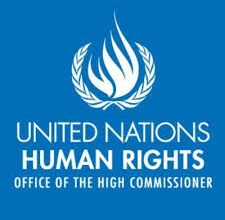Public Authority for Disabled confirms 3,091 citizenship revocations
The cases include 918 people with special needs, 1,324 caregivers, 808 women caring for disabled individuals, and 41 employees of the authority.

• Disabled individuals with Kuwaiti mothers will continue receiving benefits if they submit their original nationality and supporting documents, while caregivers whose nationality has been revoked will no longer be eligible for the ‘retirement’ benefit, which is reserved for citizens.
As decisions and decrees to revoke citizenship continue, the Public Authority for the Disabled has recorded 3,091 cases of revocation or loss of nationality so far. These cases include 918 people with special needs, 1,324 caregivers, 808 women caring for disabled individuals, and 41 employees, reported Arabic daily Al Jarida.
Sources said the authority recently received a list from the relevant body containing over 30,000 names of individuals whose citizenship had been withdrawn. After verifying and matching the names with its records, the authority identified the 3,091 cases and is now taking legal action against them, as they had been receiving financial benefits under Law No. (8/2010) concerning the rights of persons with disabilities based on their now-revoked nationality.
Careful review
The sources indicated that all sectors of the authority are carefully reviewing the names to sort those that fall under their responsibility and study each case individually, ensuring no one is subjected to injustice. Appropriate action will be taken according to their new status, legal frameworks, and Cabinet instructions. They stressed that if any case of forged citizenship is confirmed, all financial and in-kind benefits will be immediately suspended.
Sources confirmed that disabled individuals whose mothers are Kuwaiti will continue receiving benefits, provided they submit their original nationality and supporting documents. They added that caregivers whose nationality has been revoked will not be eligible for the “retirement” benefit, which is reserved for citizens.
Eighth grade female employees
Regarding female employees whose nationalities were revoked under Article 8, sources stated that, according to the model employment contract prepared by the Civil Service Council, these employees will receive a monthly reward for the work they perform. The contract will be valid for one year from the date of signing, with the possibility of renewal upon approval by the bureau.
The government agency (the first party) reserves the right to terminate the contract without prior notice to the employee (the second party) if there is a breach of contract terms. In matters not specifically addressed in Civil Service Council Resolution No. 1/2025, the provisions of the Civil Service System Law will apply to the employee. The contract will be prepared in triplicate, with one copy provided to the employee.
Disclosure requirement for guardians of disabled students’ tuition fees
Wafaa Al-Muhanna, Acting Director of the Public Authority for the Affairs of Persons with Disabilities, issued an administrative circular requiring the guardians of disabled students and all educational institutions under the authority’s support—including nurseries, schools, and rehabilitation centers—to immediately disclose if the guardian’s employer, or any other entity, pays the tuition fees for disabled students enrolled in these institutions.
According to the circular, these educational institutions must record all payments received from the guardian’s employer or any other source in their approved budget and provide this information to the authority if requested. The Educational and Rehabilitation Services Sector will ensure that all relevant entities receive copies of this circular, and will emphasize the importance of compliance to avoid legal accountability.












